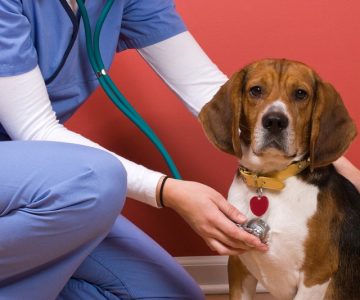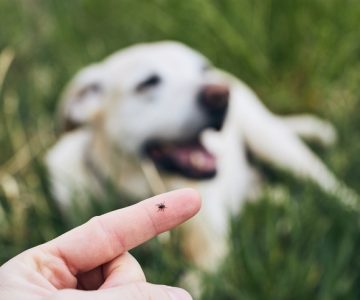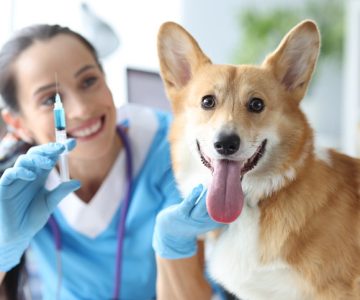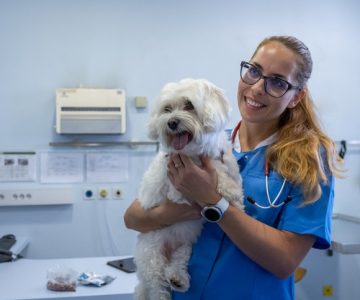What Vaccinations Do Indoor Pets Need?
Indoor pets may not roam the wild, but their need for protection against diseases remains a priority for pet owners. Vaccinations are a crucial part of maintaining your pet’s health and well-being, regardless of whether they explore the great outdoors or enjoy the comforts of a cozy home.
Core Vaccines for Indoor Pets
Core vaccines are considered essential for all pets based on the universal risk of exposure, the severity of the disease, or the risk of transmission to humans. Indoor pets require a foundation of immunizations to safeguard their health.
-
Rabies: A fatal virus that can affect all mammals, including humans, making it imperative for pets to be vaccinated.
-
Distemper: A contagious and serious viral illness with no known cure, making the vaccine critical.
-
Hepatitis: Vaccination against liver infections caused by the canine adenovirus is vital for a pet’s health.
-
Parvovirus: This highly contagious virus causes gastrointestinal illness in pets, with severe cases being potentially fatal.
Additional Vaccines Based on Risk Assessment
Some vaccines may be recommended based on the pet’s lifestyle, such as their exposure to other animals or specific regional disease risks.
-
Feline Leukemia (FelV) for cats: Recommended for cats who might escape outdoors or who live with an infected cat.
-
Bordetella (Kennel Cough): Often suggested for dogs that may come into contact with other dogs in daycare or boarding.
Nuances of Indoor Pet Lifestyle
It might seem superfluous to vaccinate an animal that doesn’t venture outside, but even indoor pets can be exposed to viruses and bacteria. An open window, a visit to the vet, or the owner’s shoes can all be vectors for disease.
Frequency of Vaccinations
Vaccination schedules can vary based on several factors, including the type of vaccine, the pet’s age, health status, and the presence of specific diseases in the region. Your veterinarian can provide the best guidance on how often your pet should be vaccinated.
Vet Visits
Regular check-ups with a veterinarian are critical even for indoor pets. Health assessments, booster shots, and advice on ongoing preventative care are best tailored to each pet’s individual needs through these visits.
Integrating pet wellness plans into your pet’s healthcare regimen can ensure a structured approach to vaccinations. These plans often bundle the cost of regular check-ups, vaccines, and preventive treatments, making it easier for pet owners to manage their pet’s health systematically.
Vaccines in Disease Prevention
Vaccinations play a pivotal role in preventing the spread of infectious diseases among pets and, by extension, protecting human family members as well. The core vaccines offer a shield against some of the most common and severe pet ailments.
Puppy and Kitten Vaccination Schedules
Young animals are typically on a more frequent vaccination schedule to build their immunity. Starting at a few weeks of age, puppies and kittens will require a series of shots every 3-4 weeks until they reach approximately 16 weeks of age.
Senior Pet Considerations
Older pets may have different vaccine needs. As their immune system ages, the frequency or type of vaccines may change. Regular veterinary consultations are vital to adjust their care as needed.
In addition to vaccines, maintaining your indoor pet’s health may require other medications or supplements. Choosing a reliable pet pharmacy in Cave Creek, AZ, can provide the necessary support for your pet’s ongoing health needs.
Legal and Residential Requirements
Some vaccines, like rabies, are also a legal requirement in many places. Apartment complexes and residential areas may also have their own rules about pet vaccinations for the safety of all residents.
To read more info on vaccinations and the best healthcare for your pet, consult a veterinarian. Staying informed can ensure that your indoor pet enjoys a long, healthy, and happy life inside your loving home.
Managing Side Effects
Just like humans, pets can experience side effects after receiving vaccines. While most pets only have mild reactions, it’s still important to keep an eye on them following their vaccinations. Watch for signs like tiredness, small bumps at the vaccination site, or a slight fever.
These are typically not a cause for worry and should go away on their own. But there are some other signals that might mean more serious side effects.
-
Uncommon Reactions: Keep your pet under observation for any abnormal signs like persistent vomiting, diarrhea, swelling, or difficulty breathing. These might indicate a more serious reaction to the vaccine.
-
Post-Vaccination Care: Offering a quiet and comforting space for your pet can help them recover more smoothly from the vaccination. Make sure they have easy access to fresh water and a comfortable place to rest.
If you observe any unusual symptoms, don’t hesitate to call your vet for advice. Prompt attention to side effects can ensure your pet stays healthy.
When to Call Your Vet
If your pet starts showing symptoms that concern you after getting vaccinated, it’s a good idea to get in touch with your vet right away. They can give you advice on what to do next and if your pet requires medical attention. Always err on the side of caution and consult a professional if you’re unsure.
-
Seeking Immediate Help: If your pet shows signs of a severe reaction, like difficulty breathing, collapse, or sudden swellings, it’s critical to seek urgent veterinary care. These could be signs of a rare but serious condition called anaphylaxis.
-
Documenting Symptoms: When you speak to your vet, describe the symptoms you’ve observed in as much detail as possible. This information can help the vet assess the situation and provide the best care for your pet.
Remember, while most pets experience only mild side effects from vaccines, it’s always best to monitor your pet’s health and behaviors after their shots. Doing so will ensure you’re ready to act if any problems arise. Your vet is there to support you through your pet’s post-vaccination phase, so don’t hesitate to reach out to them with your concerns.
To End
Being proactive with the health of indoor pets includes recognizing that even the coziest indoor environment can’t shield pets from all exposure to disease. Vaccinations are an investment in your pet’s health that can prevent serious illnesses and promote a longer, happier life for your beloved companion. Consulting with a veterinarian regularly will keep your indoor pet on the right track for necessary vaccinations and overall wellness.





